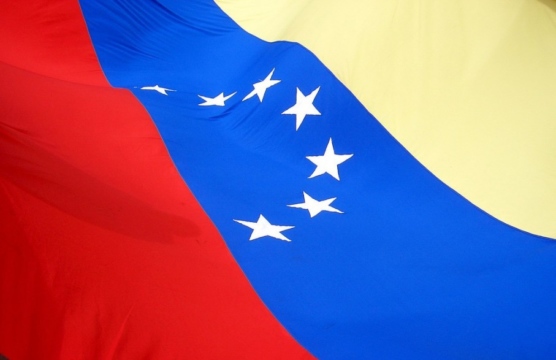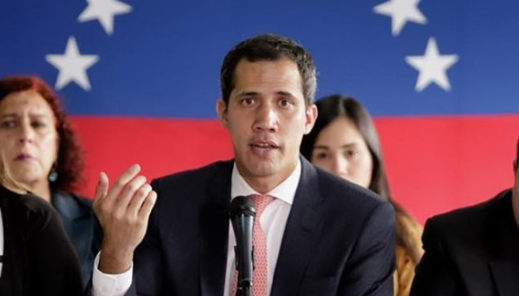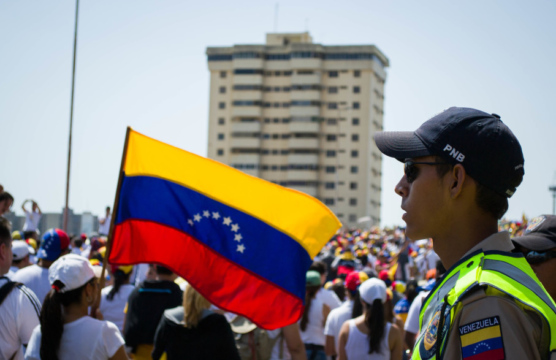
Falling Oil Prices Push Venezuela, Maduro Closer to the Edge
With crude oil prices down 25 percent since June and holding at roughly $86 a barrel on Tuesday, Venezuela is getting nervous.
A Daily Publication of The Dialogue
Venezuela’s attorney general on June 18 accused opposition leader Juan Guaidó of leading an alleged scheme in which two of his representatives are accused of misappropriating money meant to help Venezuelan military defectors living in Colombia. Guaidó has vowed to investigate. How big a blow are the allegations to Venezuela’s opposition movement? Will Guaidó lose support over the episode? Is the movement to oust President Nicolás Maduro losing steam?
David Smilde, Charles A. and Leo M. Favrot Professor of Human Relations at Tulane University and senior fellow at the Washington Office on Latin America: “The accusations of misappropriation are not transcendental in their impact. But they are a part of a process of political normalization that does not work in Guaidó’s favor. His project to become interim president and usher in a democratic transition was facilitated by his image as a fresh face, legitimately representing Venezuelans’ aspirations for liberty and well-being. Among the population, accusations such as these transmit a perception that Guaidó and his coalition are just another band of politicians seeking personal benefit. And these perceptions contribute to a more general malaise that this new opposition coalition is no more effective than past opposition coalitions at confronting Chavismo. Behind this of course are the very real facts that Guaidó has failed to gain military support and the interest of the United States is fading, as is talk of foreign military intervention. There is considerable consensus within the opposition leadership that they need to change directions and negotiate with the Maduro government. But selling that to their followers and trying to keep their coalition unified in the process is their current challenge. Just as hard is getting the United States to be constructive. While there is implicit recognition deep within the Trump administration regarding the need for negotiation, key U.S. diplomats around the globe continue to push an anti-negotiation message.”
Charles Shapiro, president of the World Affairs Council of Atlanta and former U.S. ambassador to Venezuela: “Twenty years of Chavista corruption and criminality compounded by incompetence have transformed Venezuela into a failed state whose citizens are fleeing the country in record numbers. For Nicolás Maduro’s attorney general to accuse interim President Juan Guaidó’s people of misusing funds intended to cover the room and board of Venezuelan military defectors is ironic—and troubling to the extent that there may be some truth to these charges bouncing around the Twitter-sphere. I have no doubt that Guaidó is more than busy rallying his supporters, dealing with the existential threat that Maduro and Chavismo represent to the popularly elected National Assembly, the last vestige of democracy in Venezuela, and listening to the cacophony of domestic and international voices telling him what he should and should not be doing. To add my voice to that cacophony: Guaidó should seize the opportunity to act presidential, to demonstrate that he is not just another politician turning a blind eye to corruption and to draw a bright line between Chavismo and the democratic forces in Venezuela. Among the million Venezuelans in Colombia, there are certainly lawyers, investigators and judges. Use those resources. Investigate what happened to those funds and whether they were misused. If they were misused, collect evidence and build a case. Just like in any democratic nation where the rule of law prevails, if there is sufficient evidence, the perpetrators should be indicted. Rooting out corruption will not undermine Guaidó. It will make the point that Guaidó will not tolerate corruption as business as usual, that he represents a real change and that Venezuela has hope for a better future.”
Julia Buxton, professor of comparative politics at the School of Public Policy of Central European University in Budapest: “Guaidó’s problems run much deeper than this misappropriation scandal, but the scandal is symbolic of the wider vulnerabilities that the interim administration has created for itself. Five months since his auto declaration, the interim president is no closer to assuming power than he was back in January. He may be legitimate in the eyes of (the oft-repeated) ‘more than 50 countries,’ but this has not translated into control of the state or national policy, finances and territory. The strategic errors are accumulating, next steps are unclear, popular expectations have been elevated and repeatedly frustrated, and Guaidó’s capacity to convoke mass mobilizations is waning. The longer the impasse drags, the more of a challenge it will be for Guaidó to hold his coalition together. To date, he has sought to placate divergent factions, resulting in rhetorical and policy flip-flopping. This creates an impression of incoherence. Guaidó is too reliant on the United States to leverage a domestic political shift and too disengaged from the ramifications of U.S. mechanisms, such as sanctions and asset seizures, to force regime change. While the former are exacting a heavy social toll, the latter elevate the risk of irregularities in Guaidó’s interim administration. The lack of oversight of funding streams is a problem, including among the parallel ambassadorial appointments Guaidó has made. The latest allegations will no doubt be the first of many given the vulnerabilities inherent in seeking to sustain and formalize an interim administration long after its viability has been exhausted.”
Gustavo Roosen, president of IESA in Caracas: “It is cynical that the attorney general of Venezuela has accused two people of misdeeds that have occurred in Colombian territory where his office has no jurisdiction. Public statements by the minister of information and culture, Jorge Rodríguez, about the existence of alleged multi-million dollar thefts by Guaidó’s supporters in Colombia, in events that had to do with humanitarian aid from third-party countries to Venezuela, preceded this accusation. The origin of the accusation was journalistic work undertaken by a publication related to the opposition, but in reality, what the publication wanted was to alert the government of Juan Guaidó about alleged irregularities that could affect him and compel him to react. Guaidó’s reaction was instantaneous. He took full responsibility for the humanitarian aid and the management of funds related to it. He immediately asked the veteran ambassador of Venezuela in Colombia to file a formal complaint within the Colombian jurisdiction. Unlike the Maduro administration, President Guaidó is fully aware that the authority can be delegated but that responsibility is non-delegable. His way of handling this accusation could strengthen his image. This is his way of carrying out a hand-to-hand fight to stop Nicolás Maduro’s usurpation of the government. The reality is that the cessation of the usurpation has turned out to be lengthier than anticipated, which has affected the country’s initial enthusiasm.”
The Latin America Advisor features Q&A with leaders in politics, economics, and finance every business day. The publication is available to members of the Dialogue's Corporate Program and others by subscription.
With crude oil prices down 25 percent since June and holding at roughly $86 a barrel on Tuesday, Venezuela is getting nervous.
Can the government led by Nicolas Maduro survive the wave of street protests that have spread throughout Venezuela over the past two weeks?
Deadly protests, the largest since President Nicolás Maduro’s election last year, have wracked Venezuela in recent weeks.
 Photo: Facebook page of Juan Guaidó.
Photo: Facebook page of Juan Guaidó.
